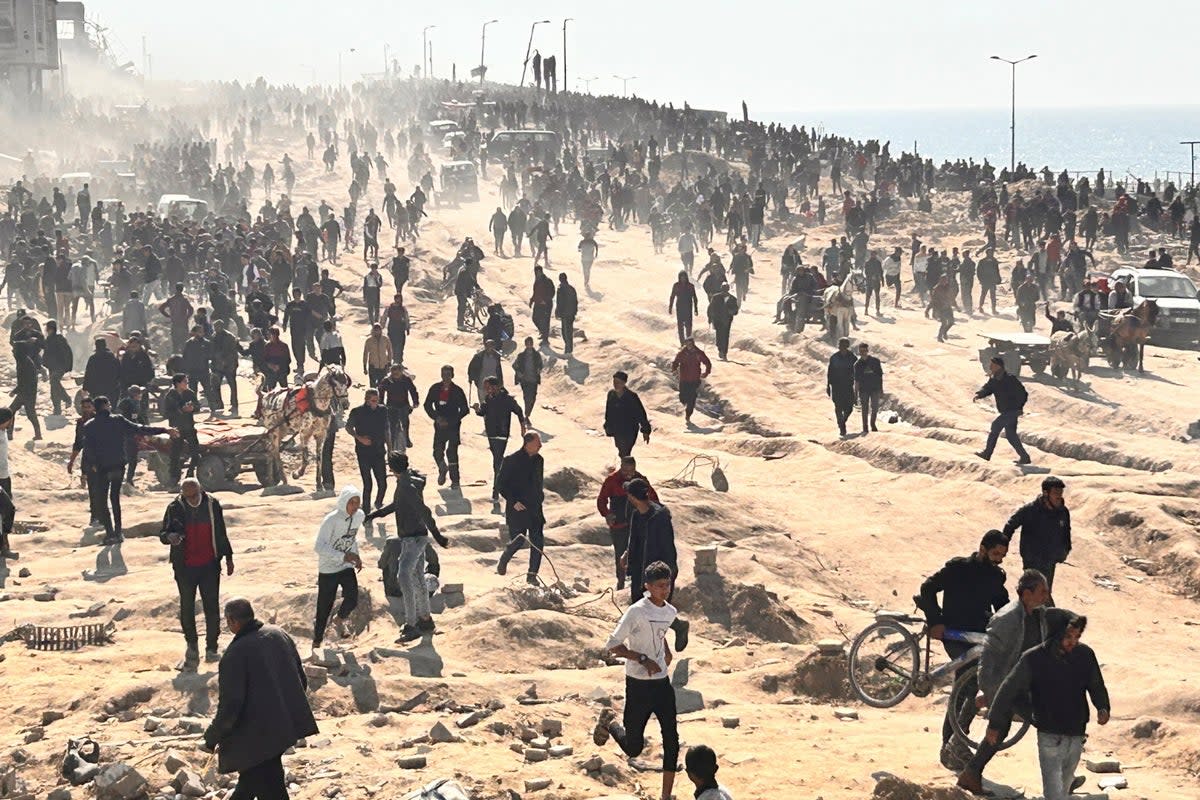Even talk of a potential ceasefire in Gaza is a cause for hope

It is hardly a “done deal” – and disappointment may yet transpire – but the very fact that a ceasefire in Gaza, of whatever genus, is being actively negotiated and openly discussed by the president of the United States represents enormous cause for hope.
Too many people – almost 30,000 now, according to the Palestinian health ministry – have died. President Biden has indicated that an end to the fighting could be organised as soon as next week, if not the weekend. If agreed, it would, it seems, last for 40 days during the Muslim holy month of Ramadan, which begins on the evening of 10 March. It is possible that such a pause in the conflict could then evolve seamlessly into a more permanent end to the war.
Such a situation, which seemed remote only weeks ago, at least creates some of the conditions for something like political progress. Part of that, as the US government has hinted, might well entail recognition of Palestine by Western countries as an independent nation state. That, as the foreign secretary, David Cameron, has made clear, would include the UK – a symbolic move given Britain ruled Palestine for three decades, its mandate ending in 1948.
That is running some way ahead of events, however. First, the ceasefire has to be signed off by enemies pledged to one another’s destruction – Benjamin Netanyahu and Hamas. The contribution to the process of the prospective ceasefire made by the United States (especially the well-travelled secretary of state, Antony Blinken), Egypt and Qatar has been outstanding and worthy of a joint Nobel Peace Prize.
What form will the ceasefire take? It seems the outlines of a deal are becoming clearer. Israeli and other hostages will be released in exchange for Palestinian prisoners. Humanitarian aid supplies, so urgently needed, will flow into Gaza, including the isolated north. Shelters can be built; the sick treated; and Palestinian civilians can return to what remains of their homes, bury their dead and trace lost family. The anguish of Israeli families divided from loved ones since the 7 October Hamas atrocities will start to ease.
Obviously – though it cannot be stressed hard enough – a ceasefire has to be implemented by both sides. So not only must Israel postpone, and in effect cancel, the catastrophic ground offensive planned for Rafah, so too must Hamas and its various allies desist from firing rockets at Israeli settlements from any Palestinian territory. A ceasefire logically cannot be one-sided, and so far as Netanyahu is concerned, a breach of it would be met with massive and immediate escalation, probably before the White House has had a chance to restrain him.
The longer the break in the fighting, the more tensions will ease across the region. Provided Iran, a shadowy presence throughout, also tacitly becomes a party to the ceasefire, then the Houthi campaign in the Red Sea and Gulf of Aden should also subside. International shipping may then resume.
Iranian-inspired militia attacks on US bases in Jordan and elsewhere will also pause. Just as war feeds on itself, so too can peace create a virtuous circle of diminished grievances and lower levels of violence. The nightmare of direct confrontation between Iran and Israel or America will have been averted.
It also makes it that much less likely that Israel will be found in breach of the orders issued to it by the International Court of Justice, and to have committed acts of genocide.
In truth, the war, as prosecuted by the present government, was not actually destroying Hamas – and it was only going to become more counterproductive the longer it dragged on. Victory in any meaningful sense was proving elusive. It is in Israel’s own interests for the fighting to be wound down.
The consequences of peace, then, will be far-reaching, including across the West. Though hardly the most important part of the story, social democratic parties will be relieved from trying to strike a political stance that balances the right of Israel to defend itself and the need to end the loss of innocent life. The US Democrats and the British Labour Party, among others, will no longer have to contort themselves over what type of ceasefire should be called for, once the guns have gone quiet.
The debate can then turn to what kind of peace there should be, how the new Palestinian nation will organise itself, and how the two countries between the river and the sea can guarantee one another’s security.
Those will be better arguments to have.

 Yahoo News
Yahoo News 
